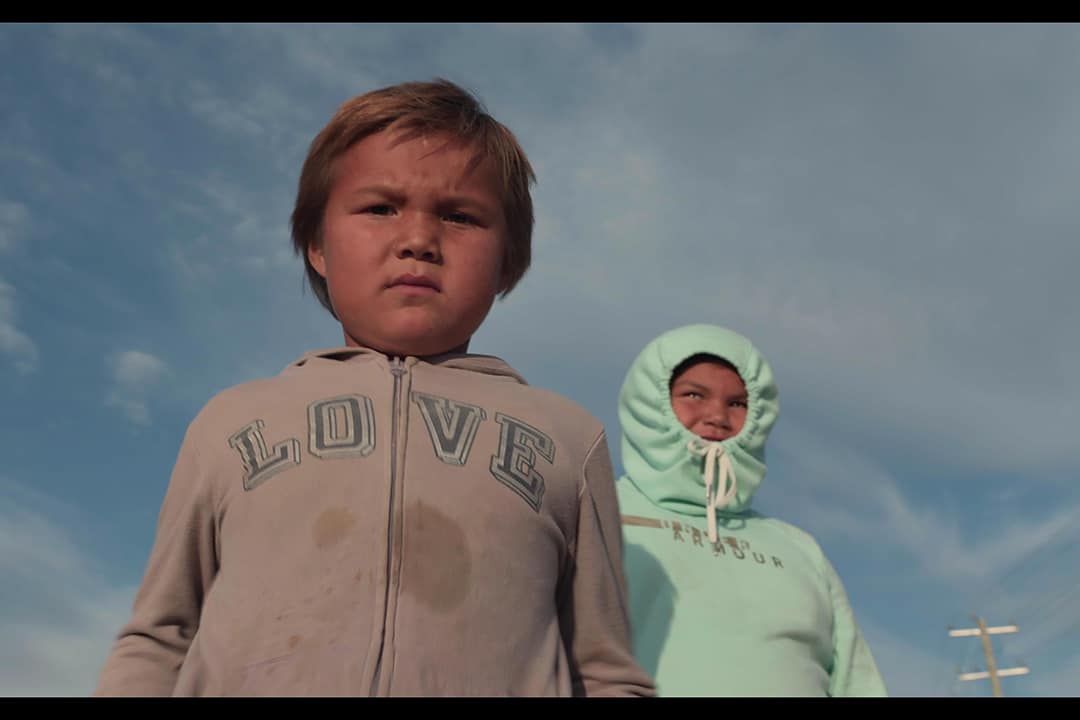Content warning: This article describes abuses committed as part of the residential school system.
How does a systematically severed community begin to rebuild itself? How do its scattered members heal from intergenerational trauma, collect the disparate parts of their culture, and pass it on to their descendents?
For Love, a documentary produced by Mary Teegee and Matt Smiley weaves together the stories of Indigenous peoples across Canada to try to answer these questions. During its 88-minute runtime, this poignant piece of filmmaking, available on Netflix as of September 21, aims to teach Canadians about the trials that Indigenous peoples have endured, while simultaneously diving into the incredible work that Indigenous leaders are doing to provide hope and joy to the next generation.
For this year’s National Day of Truth and Reconciliation, The Varsity spoke with Teegee about For Love, as well as Indigenous peoples’ movement of resilience and hope for rebuilding Indigenous communities.
All for the children
For Love demonstrates how the Canadian government attempted to commit cultural genocide on Indigenous communities by targeting their children. While the residential school system and Sixties Scoop — when Indigenous children were forcibly removed from their homes by child welfare services — did so most directly, the aftershocks of these programs ensured that Indigenous children were still being taken out of their homes long after they officially ended.
As a result, Indigenous children make up 52.2 per cent of children in the Canadian child welfare system. In an interview with The Varsity, Teegee explained that, in accordance with these statistics, one of the primary goals of the documentary was to show Indigenous communities that it is not their fault that so many of their children are in the welfare system. Those interviewed in the documentary shared stories about what Canada’s methodical campaign had done to their families, and the devastating long-term effects it had on their lives and mental health.
“It wasn’t [the parents] fault… it was something greater than them,” Teegee said. “I wanted to make sure [the children] felt loved. That they understood the culture. That they could see themselves in film and celebrate who they were as Indigenous people.”
This message of hope and love permeates throughout the entire documentary, as the filmmakers do their best to showcase the diversity of Indigenous peoples while connecting them through not only a common trauma but through common resilience and values as well.
Shaping the narrative
Teegee knew that she wanted to share these messages with Indigenous youth when she started working on the documentary, but ultimately, the film was fleshed out by the people who came forward to tell their stories.
“It was really organic,” Teegee said. “I was very, very humbled and honoured by the interest in being part of this film… by the strength of the individuals [who] came forward to share their stories. And they did this because it was for the children.”
The documentary reframes a narrative that has been twisted for decades by the Canadian government. It featured many Indigenous peoples working incredibly hard to restore the force of their communities — to teach their children their stories, their languages, and their customs.
Similarly, the filmmakers aimed to highlight solutions that came from Indigenous peoples, especially when it came to child welfare. Many workers in the system emphasized preventing child welfare risks rather than taking children away once those risks had already manifested.
Teegee also noted the willingness of Indigenous youth to connect with their culture, and how important it is for community leaders to meet the youth where they are in their cultural journey. For example, For Love featured TikTok as a useful tool for helping those who have been disconnected from their communities to find their way back to Indigenous teachings.
“Social media is so important for telling our story, but on a more local level… you have Indigenous TikTok and all these [platforms] where we can laugh at each other, we can celebrate each other,” Teegee elaborated.
Teegee added that the screen cannot convey many elements of Indigenous cultures, which must be passed down through elders, stories, and interactions. Regardless, media platforms, including documentaries like For Love, are an invaluable way to start rebuilding that connection.
Teegee concluded that she hopes non-Indigenous people will also learn something from the film, and that they will then go on to continue educating themselves about Indigenous issues. After that, it’s a matter of confronting our institutions: “We expect change, we demand change, there is no reason that every child in Canada does not have the ability to live up to their full potential, regardless of race, creed, or colour.”
If you or someone you know has been affected by the residential school system, you can call:
- Indian Residential School Crisis Line at 1-866-925-4419 (available 24 hours a day),
- Hope for Wellness Helpline at 1-855-242-3310,
- KUU-US Crisis Line at 250-723-4050,
- Talk4Healing Help Line at 1-855-554-4325.


